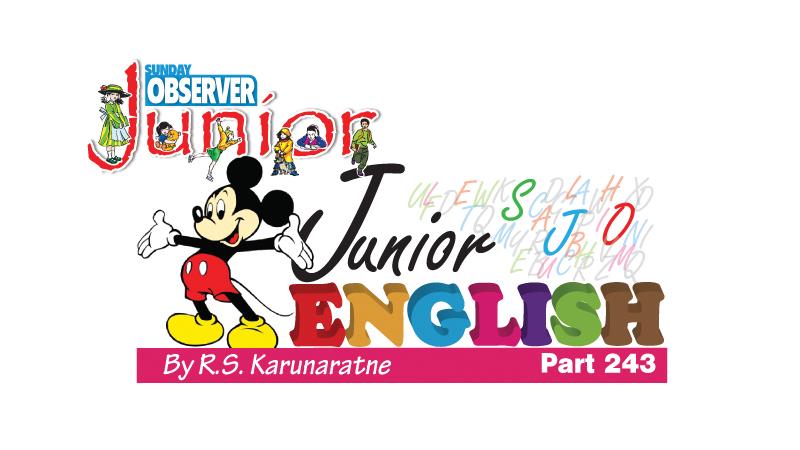
This is a guide to help learners to communicate easily in both speech and writing through a better understanding of the English language.
Nationalise / naturalise
To nationalise is to bring under the control or ownership of a nation, and is a term applied chiefly to land or industries.
The British government nationalised the railways in 1948.
Many nationalised industries in Sri Lanka are running at a loss.
If someone born outside a particular country is naturalised, they become a citizen of that country. It is also applied to the introduction and successful adaptation of animals and plants to a region so that they thrive as if in their original natural surroundings.
Native
A native is a person who was born in a particular place. A native can also be someone who lives in a place all the time or has lived there for a long time.
‘Natives’ is not a polite word used by what people in the past to refer to the people who lived in America, Africa or Southern Asia before Europeans arrived.
A native speaker is someone who has learned a particular language as their first language, rather than as a foreign language.
Nature
‘Nature’ means ‘everything in the physical world that is not controlled by humans, such as wild plants and animals, earth and rocks and the weather.’
Disease is nature’s way of keeping the population down.
‘Nature’ also means ‘someone’s character.’
Ben was a child with a happy, easy-going nature.
Manel was by nature a very affectionate girl.
A nature reserve is an area of land in which animals and plants are protected.
A naturopath is someone who tries to cure illness using natural things such as plants, rather than drugs.
Naught / nought
‘Naught’ means ‘nothing.’
All my plans came to naught.
‘Nought’ means ‘the number o.’
Near / nearly / nearby
‘Near’ means ‘only a short distance away from someone or something.’
‘A near disaster’ is almost a disaster.
The election was a near disaster for the Opposition.
‘In the near future’ means ‘soon.’
The Government has promised to increase the salaries of government employees in the near future.
‘Nearly’ means ‘almost, but not quite or not completely.’
It took nearly two hours to reach the nearest city.
Do not use ‘nearly’ before negative words. Instead use ‘almost’ or ‘hardly any.’
I knew almost nothing about her.
‘Nearby’ means ‘not far away’
Hiruni was staying in the nearby town Wadduwa.
Need / want
‘Need’ means ‘a situation in which something is necessary, especially something that is not happening yet or is not yet available.’
There is a growing need for more doctors in rural hospitals.
We say ‘there’s no need’ when you do not have to do something.
“There’s no need to feel sorry for me,” she said.
‘Want’ means ‘to have a desire for something.’
I really want a drink.
Neither … nor
If both the subjects joined by this correlative conjunction are singular, they will take a singular verb.
Neither the boy not his father was harmed in the accident.
If one of the subjects is singular and the other plural, the verb may agree with the nearer subject.
Neither the captain nor his men were prepared for the attack.
It is usual to place the plural noun next to the verb and to use a plural verb as in the example given above.
The Netherlands
The Netherlands is the proper name for the Kingdom of Holland, the adjective for which is Dutch.
The Dutch are people from the Netherlands.
In a ‘Dutch auction’ the price of something is gradually reduced until someone pays for it.
‘Dutch courage’ is the courage or confidence you get when you drink alcohol.
‘Double Dutch’ is a speech or writing that you cannot understand.
